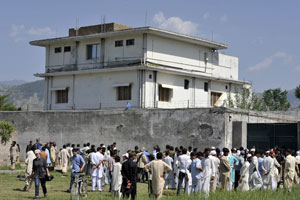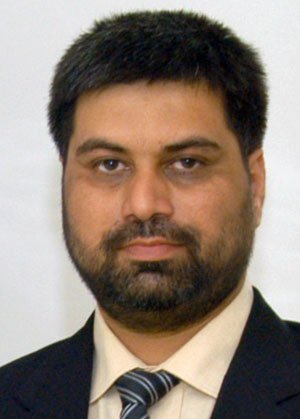ISI on the Backfoot?
By Fahd Husain | News & Politics | Published 13 years ago
With glacial speed, institutional change is creeping up on Islamabad. Blink too fast and you may miss it, but the tectonic plates are moving.
Case in point: The Inter Services Intelligence aka ISI. The hyper-organisation has never had to brave the kind of relentless pressure and scrutiny that it has in the past year. The spy agency has taken several blows on its chin, but its sheer weight ensures that it may stagger a bit but is nowhere near falling. The moot point is whether these blows will force the ISI to make some changes in the way it operates.
The jury is still out. Hyper-institutions usually do not change under public pressure. They absorb the pressure, lie low and then start over. Much of what ISI does remains outside the public — and even government — purview. That is how it has always been. In Afghanistan and Indian-administered Kashmir plus some random foreign areas, it has jealously guarded its turf, adhering strictly to the formula of the need-to-know. And most governments, in the ISI’s view, have not needed to know. In the domestic arena, ISI has its fingers deep inside the political pie, making and breaking coalitions, coercing, cajoling and persuading politicians and keeping a strict tab on meddlesome journalists and the like. It has, in other words, acted as a state within a state.
Like most organisations, the ISI too has an institutional ethos that has been nurtured over decades. ISI personnel are supposed to be deeply imbued with this ethos, and derive motivation and justification for their work from it. Most do. They operate within a shadowy world where rules and regulations are hazy and laws for mortal men appear hazy. Intelligence officials say that’s how their world is the world over. “You think Mossad is transparent,” argues a retired intelligence official. “The reason they are so efficient is because the state protects their right to secrecy,” he says.
 This is an endless debate, and one which cannot go too far publicly because intelligence people have a habit of clamming up. That is part of their training. But this secrecy, if not handled properly, breeds a lack of internal accountability. And this, in turn, leads to excesses.
This is an endless debate, and one which cannot go too far publicly because intelligence people have a habit of clamming up. That is part of their training. But this secrecy, if not handled properly, breeds a lack of internal accountability. And this, in turn, leads to excesses.
Such excesses were wont to be ignored in the past. That’s how the Pakistani state was — and in many cases still is — structured. The domineering state, deriving its authority from the colonial legacy, could do no wrong. It demanded loyalty from its citizens without promising anything substantial in return. The state and its minions could take the citizens for granted, trampling over their rights with impunity because an imperial legacy flowed in its veins.
The police, civil bureaucracy, armed forces and, yes the ISI, all these formed the blunt and the sharp edge of state power. They made laws, not followed them. They enforced the writ of the state, but stayed above it themselves. Coercion came naturally to them.
So if there is a change happening now, it is an all-encompassing one. This change is spurred by the phenomenal growth of new power centres within Pakistani society i.e the media, judiciary and an assertive citizenry empowered by technological advances like the social media. Where once the state and its organs talked down to the rest of society, now the rest are talking back. And not too politely.
Is the ISI then under pressure? Yes, but it’s not alone. So is the police, and the bureaucracy and the politicians and the government, and in fact all holders of public office who live off taxpayers’ money. The Saleem Shehzad tragedy, the Osama Bin Laden episode, Memogate etc, all these events forced the ISI on the backfoot. It came in for ferocious criticism from home and abroad, and its chief suffered withering critique for his role. This was uncharted territory. Even the name ‘ISI’ was hardly ever mentioned in the media in the bygone years. ‘Agencies’ was used as a generic term, perhaps as a weak attempt to maintain the anonymity of the organisation. But no one was fooled.
That was then. Not so now. But the significance of this change needs to be measured in a broader context. ISI may be first among equals, but it is part of the state which is now facing an onslaught from the society it has taken for granted all these years. The police, for instance, has been the face of state coercion since independence. The all-powerful SHO was lord and master of his area. Now the police is fair game. Every day the police is being lynched in the media for one excess or the other, or being physically thrashed by enraged mobs. In that uniformed policeman, the mob sees the manifestation of state coercion. By beating policemen, the mob vents its frustration and quenches its anger against the suppression it experiences on a daily basis.

Photo Courtesy: AFP
The state territory is being encroached upon by other actors, and this may constitute a gradual change within the political and social power structure. But it may be too early to predict whether this change will lead to a transformation in the way that Pakistan has always been run.
ISI still stands there rock solid. A scratch here and a bruise there yes, but the body is still pumped up with state-provided steroids.
This article was originally published in the April issue ofNewsline under the headline “On the Backfoot?”


